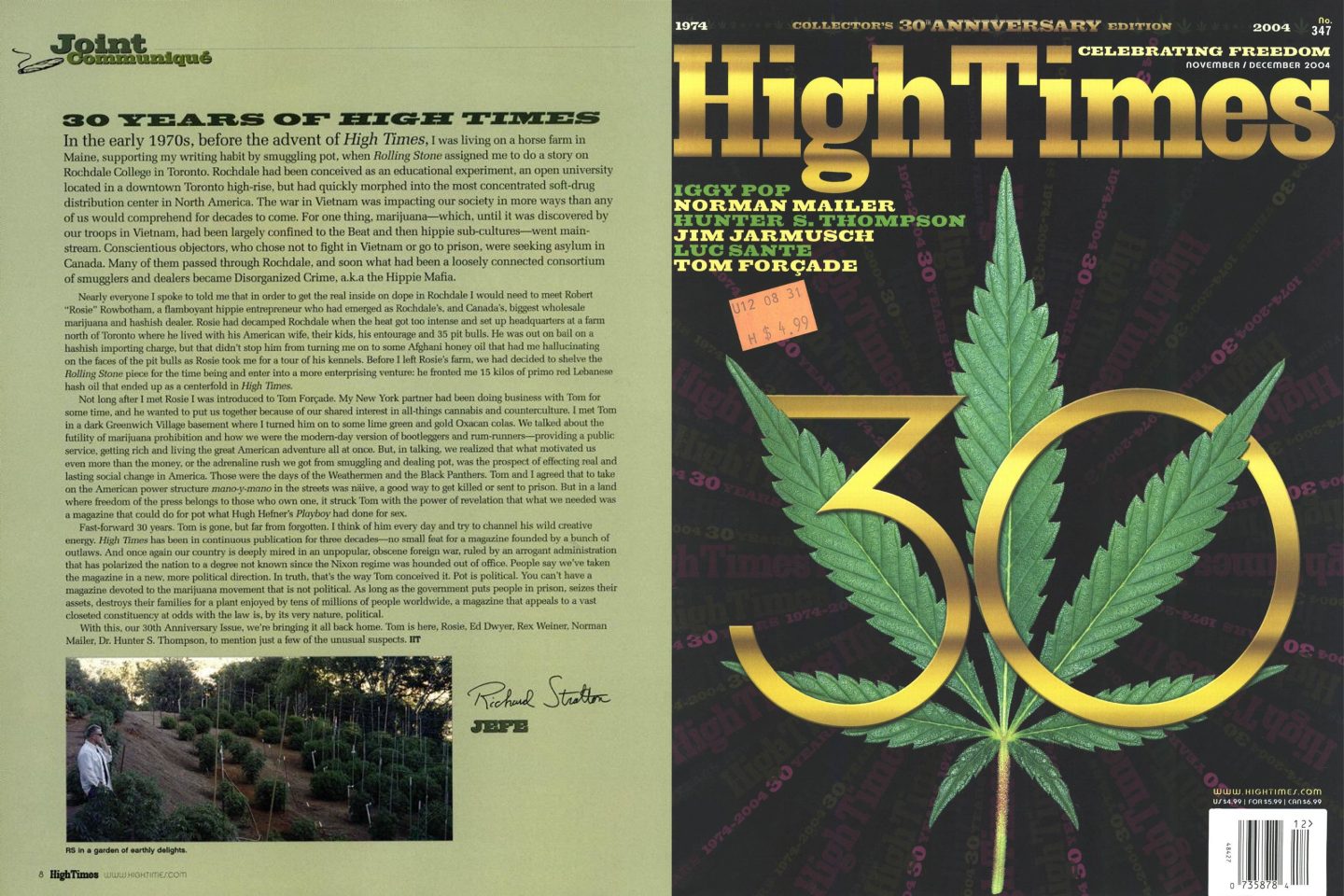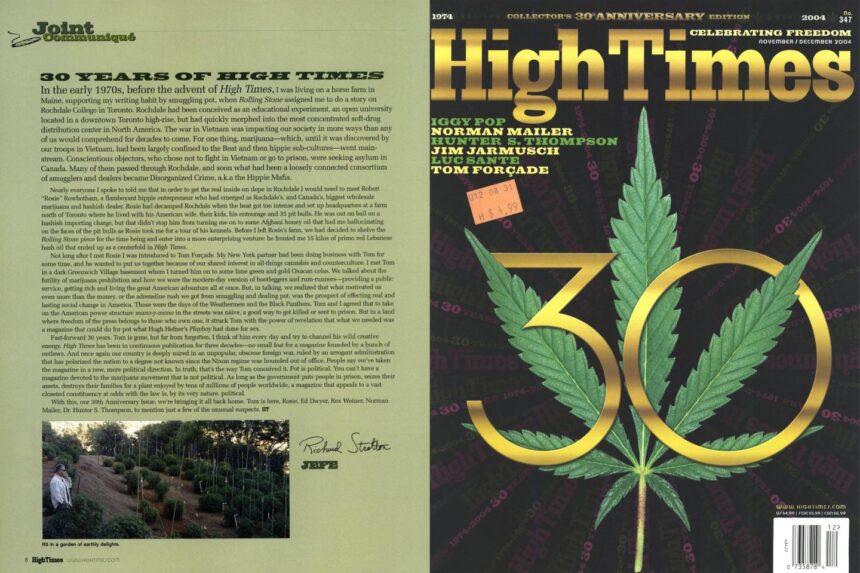Original publication: November 2004.
30 YEARS OF HIGH TIMES
Joint Communiqué

In the early 1970s, before the advent of High Times, I was living on a horse farm in Maine, supporting my writing habit by smuggling pot, when Rolling Stone assigned me to do a story on Rochdale College in Toronto. Rochdale had been conceived as an educational experiment, an open university located in a downtown Toronto high-rise, but had quickly morphed into the most concentrated soft-drug distribution center in North America. The war in Vietnam was impacting our society in more ways than any of us would comprehend for decades to come. For one thing, marijuana—which, until it was discovered by our troops in Vietnam, had been largely confined to the Beat and then hippie sub-cultures—went mainstream. Conscientious objectors, who chose not to fight in Vietnam or go to prison, were seeking asylum in Canada. Many of them passed through Rochdale, and soon what had been a loosely connected consortium of smugglers and dealers became Disorganized Crime, a.k.a the Hippie Mafia.
Nearly everyone I spoke to told me that in order to get the real inside on dope in Rochdale I would need to meet Robert “Rosie” Rowbotham, a flamboyant hippie entrepreneur who had emerged as Rochdale’s, and Canada’s, biggest wholesale marijuana and hashish dealer. Rosie had decamped Rochdale when the heat got too intense and set up headquarters at a farm north of Toronto where he lived with his American wife, their kids, his entourage and 35 pit bulls. He was out on bail on a hashish importing charge, but that didn’t stop him from turning me on to some Afghani honey oil that had me hallucinating on the faces of the pit bulls as Rosie took me for a tour of his kennels. Before I left Rosie’s farm, we had decided to shelve the Rolling Stone piece for the time being and enter into a more enterprising venture: he fronted me 15 kilos of primo red Lebanese hash oil that ended up as a centerfold in High Times.
Not long after I met Rosie I was introduced to Tom Forçade. My New York partner had been doing business with Tom for some time, and he wanted to put us together because of our shared interest in all-things cannabis and counterculture. I met Tom in a dark Greenwich Village basement where I turned him on to some lime green and gold Oxacan colas. We talked about the futility of marijuana prohibition and how we were the modern-day version of bootleggers and rum-runners—providing a public service, getting rich and living the great American adventure all at once. But, in talking, we realized that what motivated us even more than the money, or the adrenaline rush we got from smuggling and dealing pot, was the prospect of effecting real and lasting social change in America. Those were the days of the Weathermen and the Black Panthers. Tom and I agreed that to take on the American power structure mano-y-mano in the streets was naive, a good way to get killed or sent to prison. But in a land where freedom of the press belongs to those who own one, it struck Tom with the power of revelation that what we needed was a magazine that could do for pot what Hugh Hefner’s Playboy had done for sex.
Fast-forward 30 years. Tom is gone, but far from forgotten. I think of him every day and try to channel his wild creative energy. High Times has been in continuous publication for three decades—no small feat for a magazine founded by a bunch of outlaws. And once again our country is deeply mired in an unpopular, obscene foreign war, ruled by an arrogant administration that has polarized the nation to a degree not known since the Nixon regime was hounded out of office. People say we’ve taken the magazine in a new, more political direction. In truth, that’s the way Tom conceived it. Pot is political. You can’t have a magazine devoted to the marijuana movement that is not political. As long as the government puts people in prison, seizes their assets, destroys their families for a plant enjoyed by tens of millions of people worldwide, a magazine that appeals to a vast closeted constituency at odds with the law is, by its very nature, political.
With this, our 30th Anniversary Issue, we’re bringing it all back home. Tom is here, Rosie, Ed Dwyer, Rex Weiner, Norman Mailer, Dr. Hunter S. Thompson, to mention just a few of the unusual suspects. HT
-Richard Stratton, JEFE





























